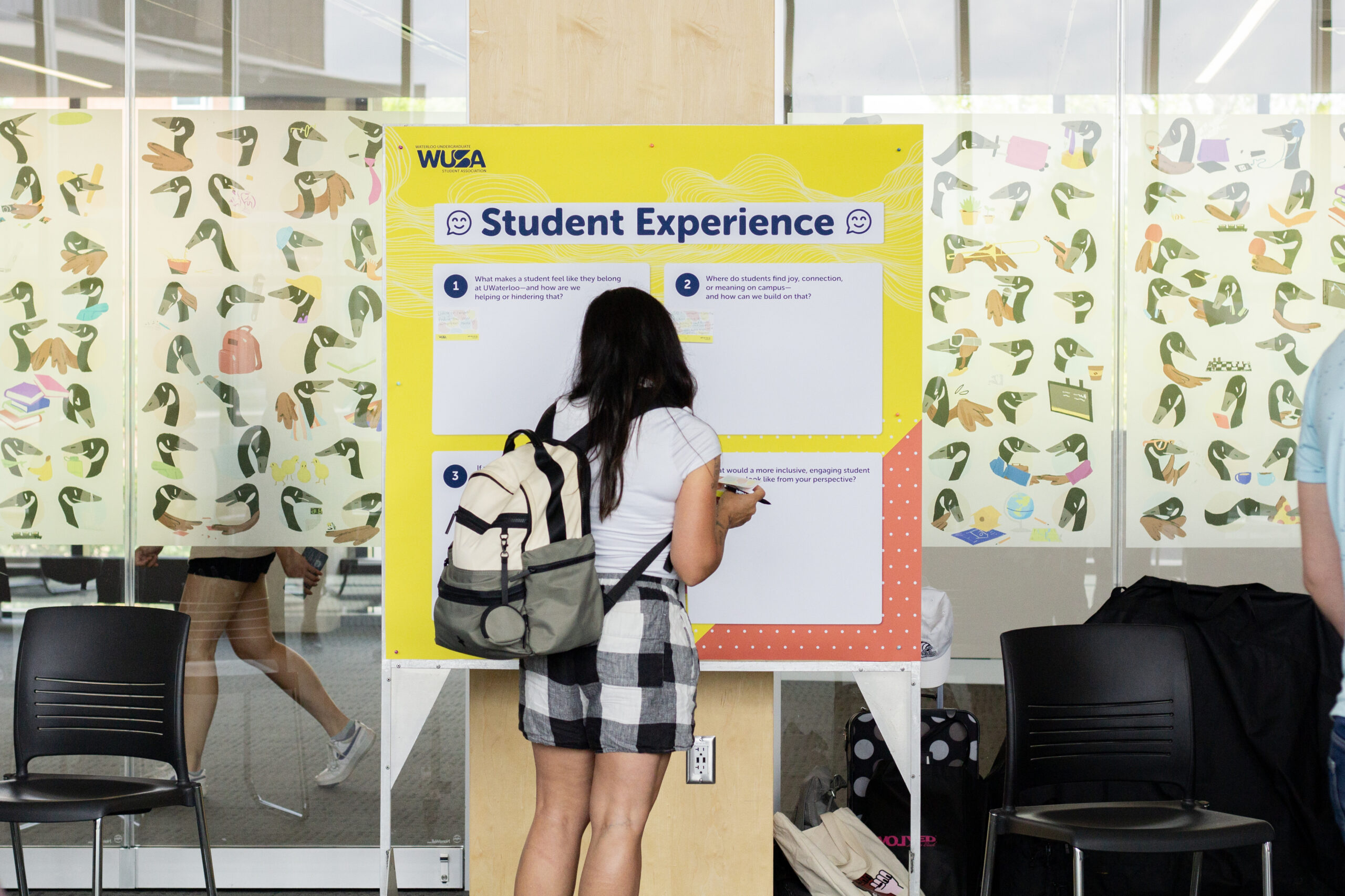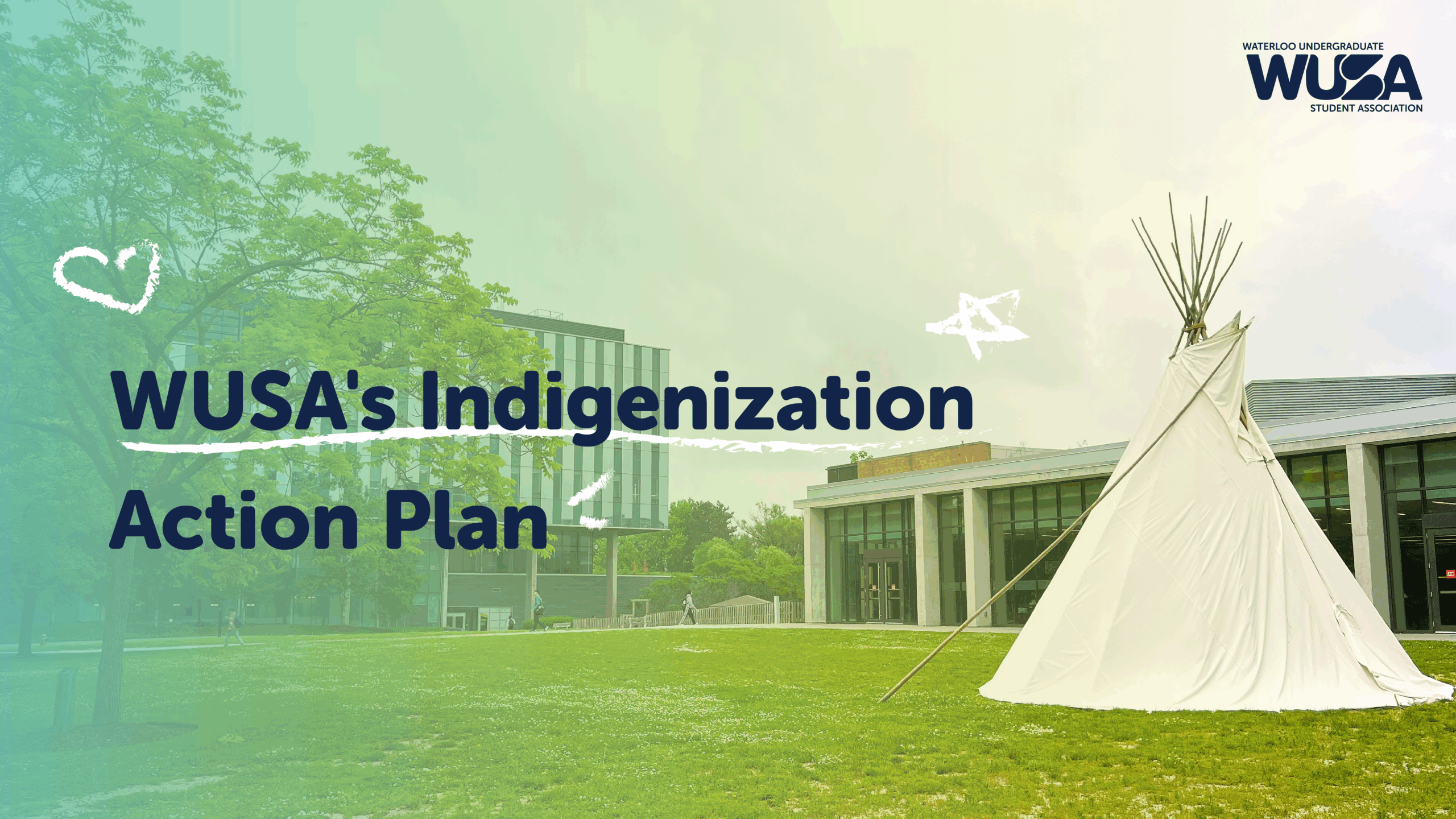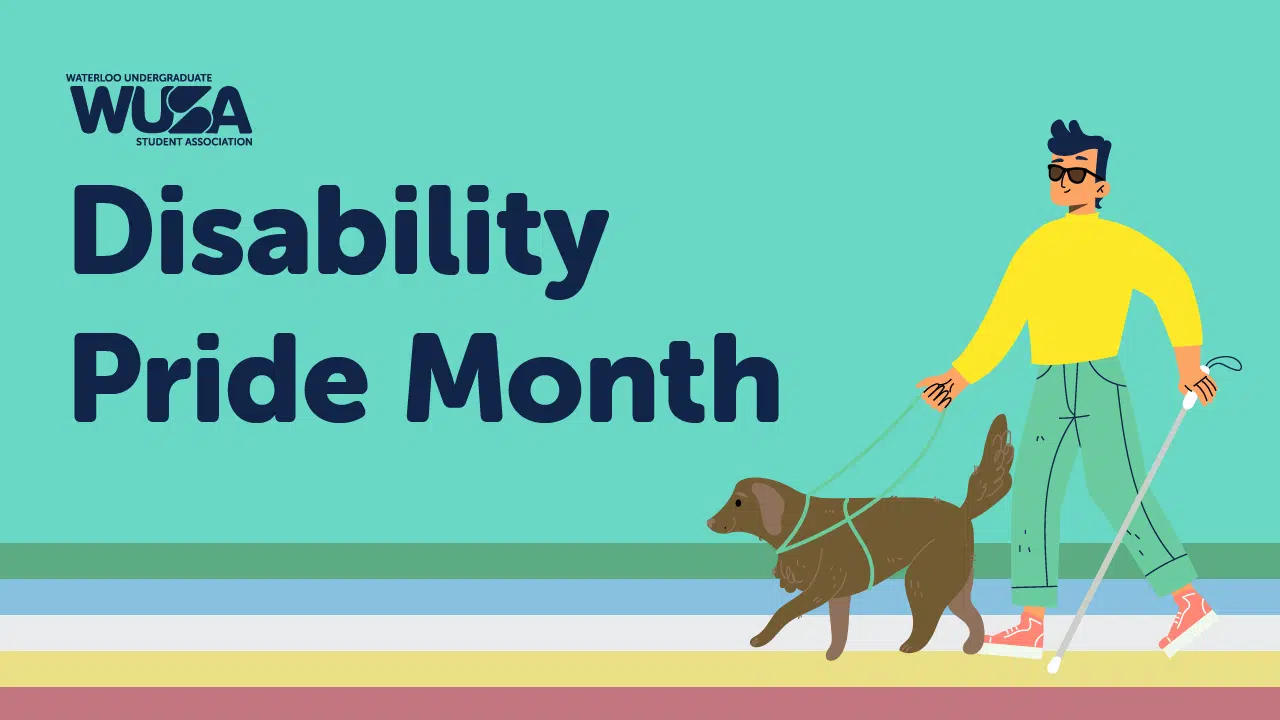WUSA’s Submission for the HREI Review Team

As the official representative of University of Waterloo undergraduates, WUSA advocates for student needs and directs students to the appropriate body on campus to ensure their questions and concerns are being looked after. However, when it comes to the University’s anti-racism work, our questions are going unanswered.
The office of Human Rights, Equity and Inclusion (HREI) has the potential to responsibly answer important student questions but currently lacks the resources to do what is best for the students who need it. This submission presents our concerns with the structure of the HREI unit and the improvements needed to better serve Waterloo’s most important stakeholders: students.
Section 1: Identifying gaps
Our first ask developed out of our Spring 2020 advocacy submission presented to the university’s senior administration in advance of our meeting in July to address anti-Black and Indigenous racism:
- Begin the process of formally removing Dr. Diana Parry from the AVP HREI role and work with UWaterloo’s students, faculty and staff from equity-seeking groups and those with lived experience who are respected and known as knowledge leaders, to evaluate and create the position(s) that will effectively address the gaps that the AVP HREI was intended to do as well as make Waterloo a leader in social innovation.
Current progress on this ask: half completed (stalled/in-progress).
It was announced in late July 2020 that Dr. Parry was stepping down and Jean Becker was appointed Interim AVP in August 2020, in addition to continuing overseeing her role as Senior Director, Indigenous Initiatives. Through her current work, background, education, and lived experience as Inuk and a member of the Nunatsiavut Territory of Labrador, Jean is more aware of racial inequities. However, Jean is relatively new to UWaterloo (with it’s unique systems and various processes) and is essential in overseeing Waterloo’s response to the Truth and Reconciliation Calls to Action, an already heavy role. In running the HREI unit, more experience is a crucial asset. Jean does not have the necessary established connections to PART or the Equity Office. Resources to assist Jean in building stronger connections with key stakeholders and offices are crucial to her role and the improvement of the unit as a whole.
Based on past experiences working with this office, going forward transparency that prioritizes accessibility and openness between WUSA and the HREI office is a must. There were issues with statements being put out in the past that didn’t include, credit, or prepare all those involved for this important work and the questions that would follow. Greater interaction among what is happening with the President’s Anti-Racism Task Force (PART), the HREI unit, and students would allow for a more coherent and cohesive communication scheme and enable better relations with students and the university.
In terms of the second half of the ask, there have not been many updates on any specific work with UW community members from equity-seeking groups but positions were created in the Equity Office. The following positions have been created since the summer: Manager, Equity Office (Nov 2020); Senior Equity Training Specialist (Nov 2020); and Senior Manager, Anti-Racism Response (Feb 2021). These roles are only specific to the Equity Office, putting “equity and anti-racism” in one area of a bigger unit of a bigger institution. In fact, these positions were not a result of our asks from Spring 2020; this is the result of the hard work put in by the Director of Equity, Gina Hickman. Therefore, more structure and resources from the University to develop HREI as a unit is needed.
WUSA VP Student Life, Nada Abouelnaga has presented these concerns during monthly meetings with Interim AVP HREI Becker. These meetings have been ongoing since September and through them, VP Abouelnaga believes that these stronger connections with WUSA will help the AVP HREI role, specifically. The unit, as a whole, needs to solve issues of effectiveness, efficiency, transparency, and communication both internally and externally.
Section 2: Follow-through on commitments
The University’s decision-making process in this work has consistently prioritized efficiency over effectiveness and intentionality. While we want to caution creating expectations of perfection that ultimately halts progress, our concern is that the right people have been left out of the conversation, leading to lack of credibility and trust in the individuals responsible for carrying out this work. At the height of the Black Lives Matter protests in spring 2020, both HREI and the President developed the following promises:
HREI June 1, 2020 commitments:
- Immediate: Establishing Dr. Christopher Taylor as Anti-Black Racism Advisor to HREI
- Immediate: Directing financial support to groups doing this work on our campus
- Immediate: Embedding anti-racism in our work on equitable recruitment and selection
- June 2020: Creating space for Black campus community members to come together for support, collective care and action, facilitated by Dr. Christopher Taylor (lecturer), and [Omi Ra (formerly Victoria Rodney)] (student)
- June 2020: Implementing training to senior leaders on anti-racism and equity, led by Kike Ojo-Thompson from the Kojo Institute*.
- June 2020: Creating online resources for those impacted by anti-black racism, and for allies seeking learning and action opportunities; and an invitation for community members to suggest additional resources
- July 2020: Establishing a virtual space for allies to come together to deepen understanding and create opportunities for action
- Termly starting in this Spring semester: Expanding our anti-racism training offerings from three a semester to monthly
- Fall 2020: Embed goals related to anti-racism in the institutional equity plan and commit to accountability across the institution.
President Hamdullahpur August 19, 2020 commitments:
- Start the process to establish both a Black Studies program and an Indigenous Studies program.
- Create a Black cultural centre on campus.
- Begin the implementation of a system in Human Resources to diversify applicant pools for employees and address barriers in recruitment and hiring processes for Black, Indigenous and People of Colour (BIPOC) individuals.
- Set a goal for increasing Black and Indigenous faculty representation and commit to funding the positions once we have the systems in place to support the hiring processes and targets are established.
- Include the University’s policy on equity in the boilerplate of every syllabus, containing a code of conduct and steps which will be taken if that code is violated.
- Develop a non-credit anti-racism module and make it available to all students.
- Commit funds to explore the possibility of establishing a Transitional Year Program for BIPOC high school students.
- Immediately become a member of the National Centre for Faculty Development and Diversity, an independent centre providing tools, mentoring and support for faculty members, postdocs and graduate students.
These commitments were made following the release of demands and asks from representative groups and BIPOC folks who have consistently engaged and lead this work independently, historically unseen and unvalued.
The administration took these asks in part and presented them as their own commitments, not crediting or intentionally involving those who have the knowledge, experience and are best suited to implement these commitments effectively. This was made public in August in the Record and again in March Inside Waterloo, and yet we have yet to see the university properly acknowledge or rectify this.
Under the initial leadership of Diana Perry, these voices, including our own, were unknowingly left out of the conversation as the Community Collaborative was formed without our involvement, and PART continued on despite our being told it would-be put-on hold until further conversations were had with the previously mentioned individuals and groups leading racial equity advocacy at Waterloo. During this time, we consistency heard from the university that they were “bringing the right people to the table,” were engaging with those leading this work on campus to build the university’s response together, more intentionally. However, we later learned that the university continued to collect names for the Community Collaborative and began conversations with folks who signed up out of interest, all while telling key advocates that these next steps were still on hold, publicly stating we were being engaged before work continued. University leadership irresponsibly allowed these initiatives to move forward without ensuring representation and intentional involvement from groups like the Black Faculty Collective, WUSA, RAISE, UWBASE, ISA, WISC, Equity4Who and other independent BIPOC voices who have been essential in bringing these issues to light.
It should also be noted that these two lists of commitments were part of the many that were announced during this time from various departments, faculties and university affiliations. The lack of cohesion, oversight and centralization made it nearly impossible to track who was doing what, where the overlaps and gaps are, who was being brought into the conversation (and how many times they were being asked to join these conversations), and where/when students were being asked to consult and engage in unpaid, emotion labour. The university has demonstrated a lack of expertise and central leadership in this area. Where the office of HREI has failed to serve its purpose in supporting equity and inclusion across the university as a whole during one of the most important moments for racial equity at Waterloo, the university has prioritized public relations in the form of statements and quantity over quality. In order to build future credibility and accountability, we urge the review team to consider the uniquely siloed nature of this university into their recommendations.
We ask the HREI review team to consider university systems and processes. The work of HREI, including racial equity, is ongoing work. Over this last academic year, we have seen members of this university scrambling, scapegoating to avoid taking ownership, tasking complex decisions to others and then blocking or delaying tough calls as they move through process. We have seen a culture of scapegoating which has contributed to the silencing, the potential and false representation of essential BIPOC staff. The consequences for this inaction will continue if we do not fix the root systemic issues. The same decision-making authority, autonomy and accountability challenges that currently exist will continue to create barriers of change unless they are acknowledged and intentionally addressed. We ask that recommendations include a focus on centralization, consistency, cohesion, and puts students’ intersectional needs at the forefront of these and future decisions.
With all these commitments and no plan for enforcing concrete objectives or providing proper support, we fear that the BIPOC voices the university has tasked this work to will continue to face barriers while navigating through oppressive systems and will be held accountable to any failures of the taskforce while the university is credited for any successes. While the commitments show that the University listened to some of the concerns being brought forward, a lot of what has happened since has been disorganized and lacked intentionality. The fact that PART is under the President’s Office is not helpful since there is not much connection/control over what is going on from HREI. Are objectives being set by PART working groups? What are their timelines? We would like HREI to have more ability to hold the work of PART accountable. In basic project management, objectives and timelines are established during the planning phase and these objectives are controlled for once implementation begins. PART does not seem to have the best outline of what its objectives or timelines are – with new leadership in HREI and trusted capable staff already working within the unit (note: some of their current focus overlaps the work of PART), it would be more effective if HREI had oversight on this project.
Section 3: “Plugging” BIPOC into Statements and Panels
If there is some doubt in the current system being used to properly reach the resolution, consultations to find out one piece of the solution will not help that incorrect system from reaching the desired outcome.
As was mentioned before, the restructuring of the HREI unit is an opportunity to understand how embracing a more holistic approach will be better for the institution and its students in the long term. Instead of doing bare-minimum work in having one BIPOC individual sitting on a hiring panel, we must expand this to have all hiring be viewed through an anti-racist lens. The right approach should be building a new process eliminating as many biases as possible: We must ask: who is applying? How are we interviewing the applicant? Where is the job posted? At every step of the process, what are the negative systemic externalities created and who do they affect? The Equity Office should be working more closely with HR to inform equitable hiring practices to be consistent across the board.
We must do this greater work because just having someone on a hiring panel does not allow them to have enough power to educate everyone else who may be lacking in their knowledge of racial issues and biases. This concept of understanding negative systemic externalities blooms beyond hiring into all aspects of campus life: why are more Black students treated as suspicious by campus police? How are we ensuring biases are addressed in grading students, do instructors grade subjective work higher if it is coming from a familiar-sounding name?
For example, in 2018 the University of Waterloo’s list of high school rankings was made public following a Freedom-of-Information request. The purposes of collecting this data might be reasonable, however, given the university’s problematic history, there needs to be a deeper-dive, led by BIPOC experts, into how this data is being used and how equity is being intentionally considered in student recruitment and admissions. This will be especially important going forward with the implementation of performance-based government funding under Ontario’s newest College and University Strategic Mandate Agreement.
In Closing
HREI has the potential to be a great resource for students but issues of effectiveness and transparency need to be analyzed and addressed. The restructuring will allow students from marginalized groups to have more confidence that their important concerns are taken with serious intent and with respect. While many of the promises from both HREI and the President came in Spring 2020, most were not followed up with clear objectives or timelines. This shows that work which could have been overseen by HREI in the past was just thrown together without enough seriousness.
For a school with the motto: Concordia cum veritate - “In harmony with truth” - it may be time to tune some instruments so we, as a community, are all part of the well-orchestrated approach to forming a more just and truthful system of tomorrow.
Published: Thursday, April 29, 2021
Related Articles
Advocacy, Featured, General, Student Blog, Student Life




